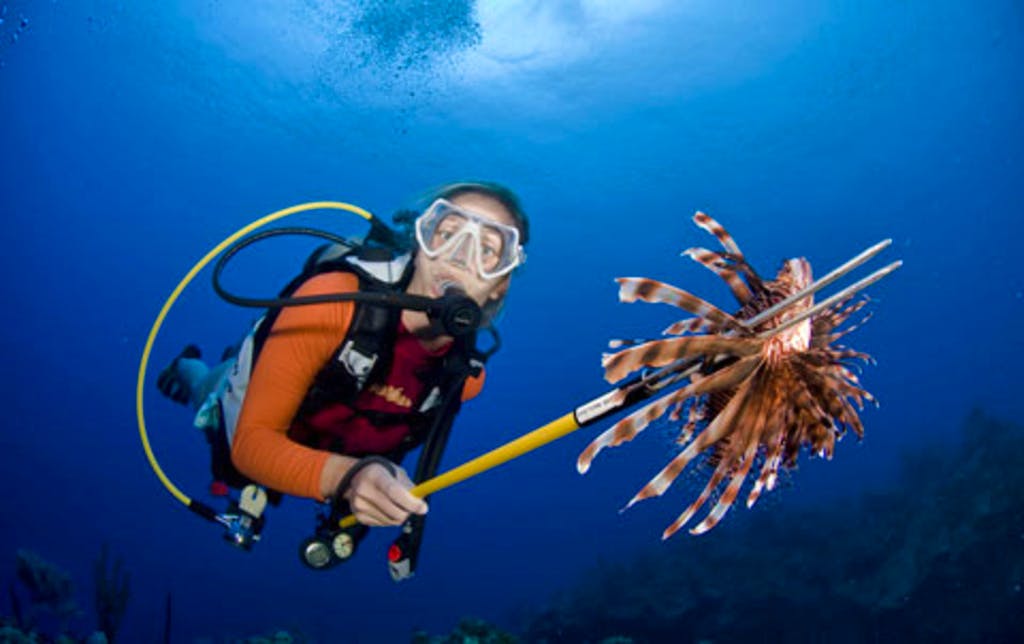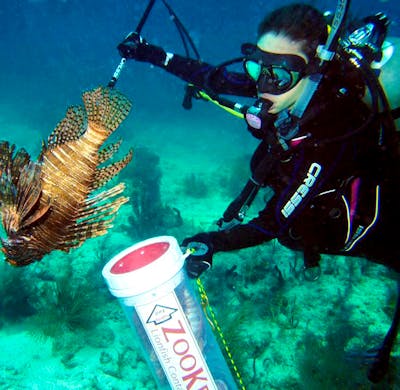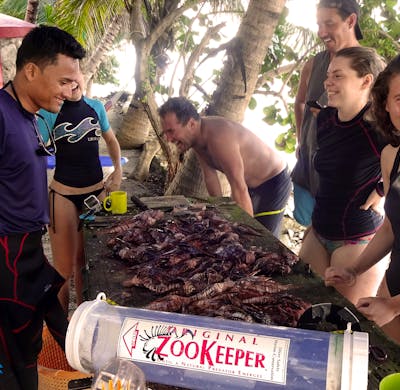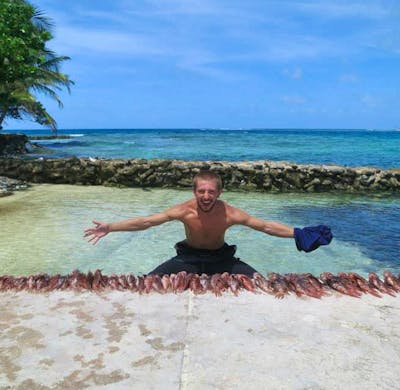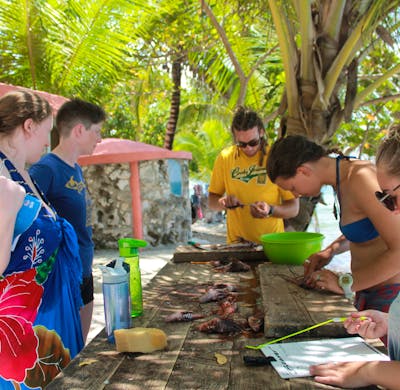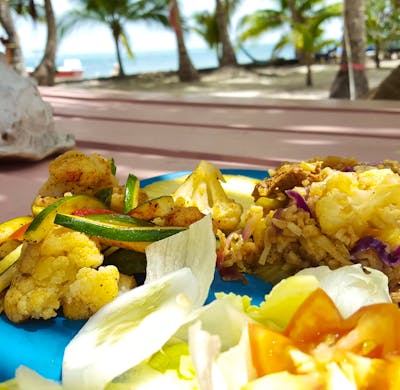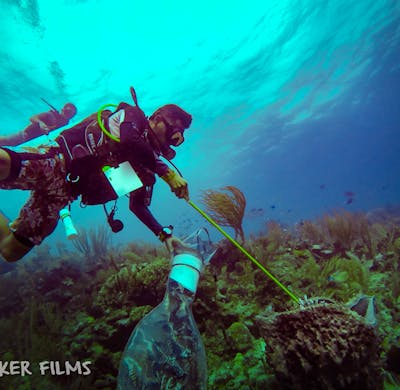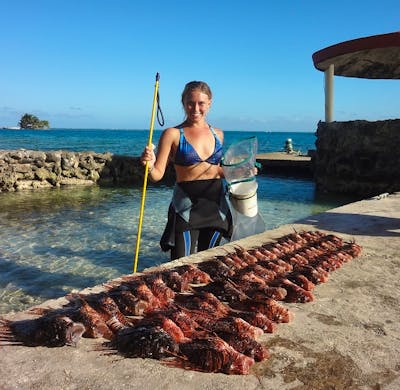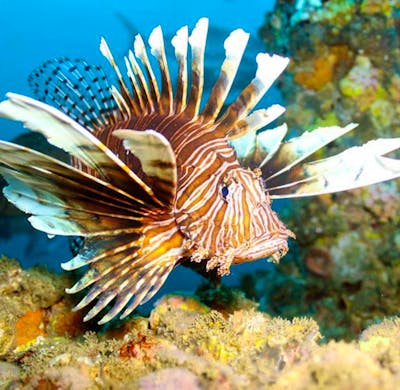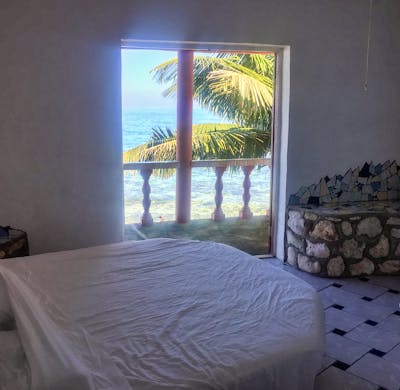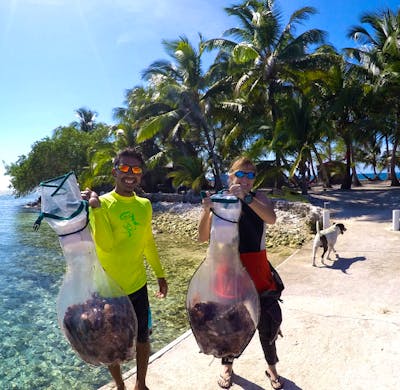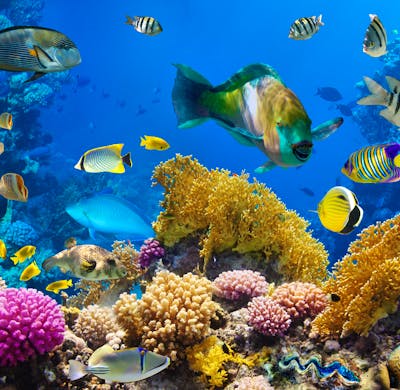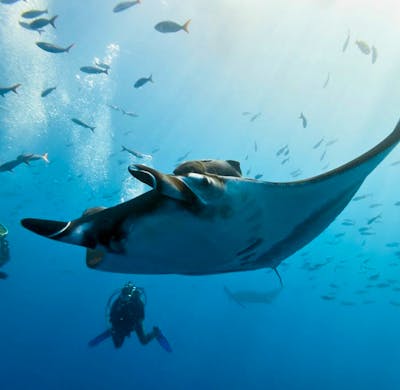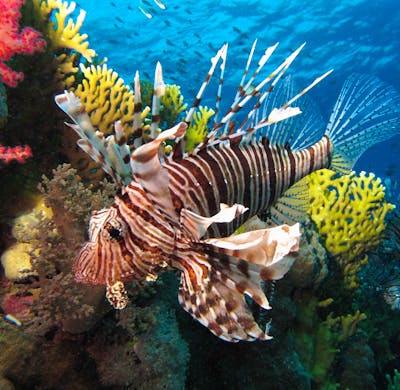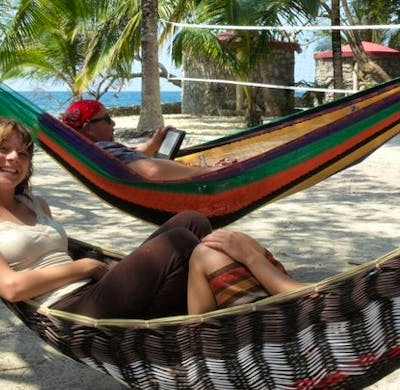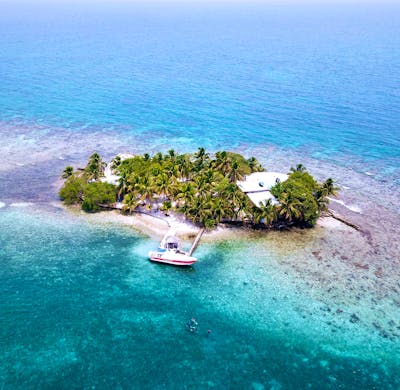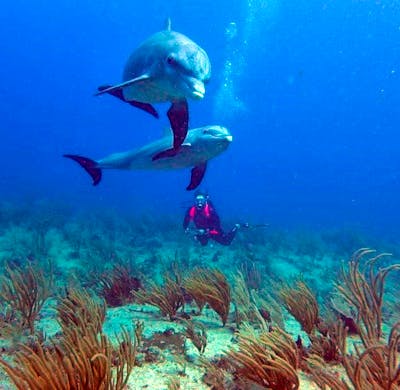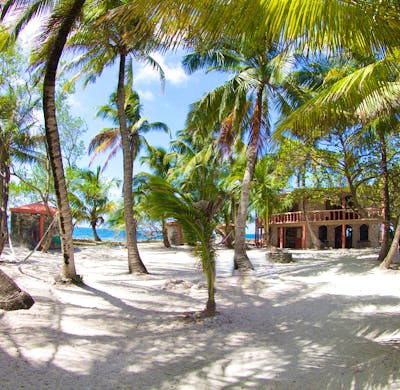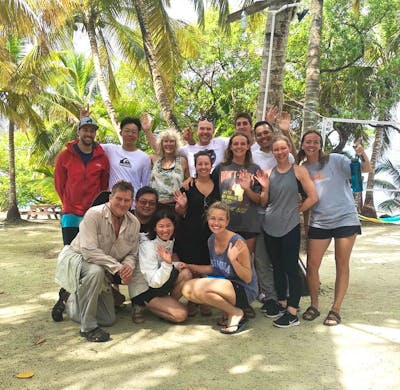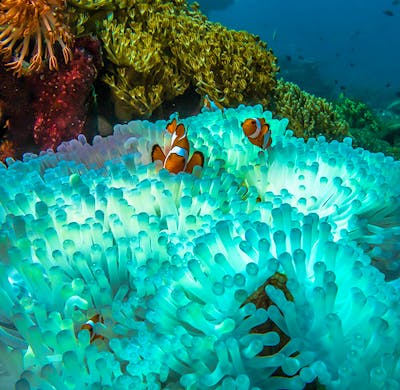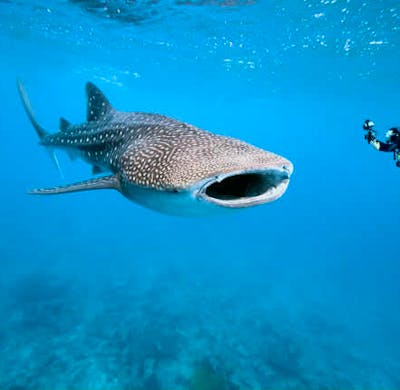2024 at Invasive Species Management
Invasive Species Management
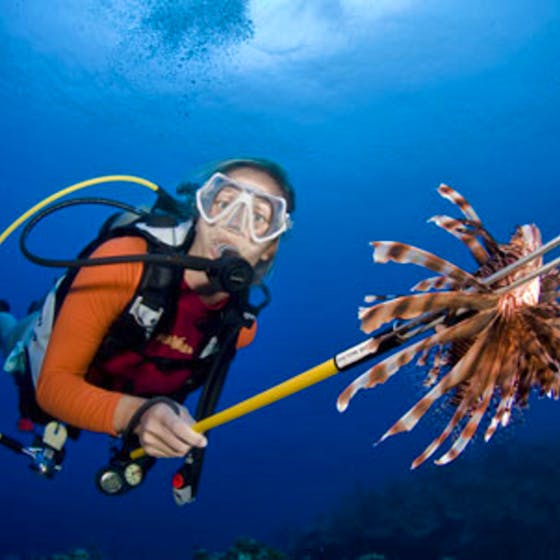
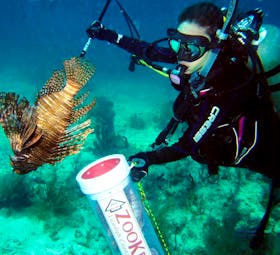
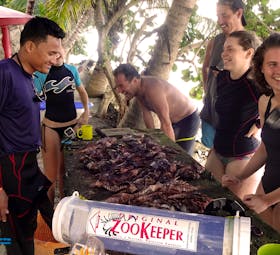
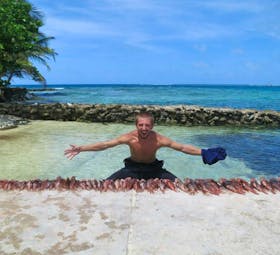
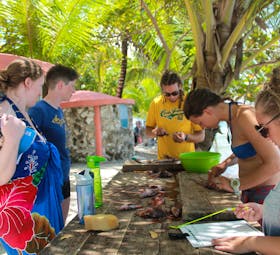
Highlights
- Feel the excitement of spearing the invasive lionfish and the satisfaction in helping remove this invasive species destroying the reefs of the Caribbean
- Volunteer on a remote private Caribbean island, a real castaway island located directly on the Belize Barrier Reef
- Protect the reef ecosystem by directly participating in our ongoing marine conservation projects and learn all about coral reefs and marine life
- Learn to dive or further your dive qualifications; everyone contributes regardless of your experience
- Be part of our dive team of invasive lionfish hunters and patrol the reefs of the Sapodilla Cayes Marine Reserve, part of the famed Belize Barrier Reef
Especially good for
About the program
Make a difference by removing lionfish, an invasive species decimating reef ecosystems. Learn to dive while culling lionfish.
Lionfish: A Tropical Invasion
Our lionfish program focuses on removing this invasive species from the reef ecosystem. People often feel that “releasing” a fish or any other animal into the wild is a good thing, but not in the case of the lionfish! The initial source of the lionfish invasion can ...
Typical day
Each week/day will differ but you will be helping and participating in the following areas:
- Invasive Lionfish: Spearfish to remove this destructive invasive species that is destroying native coral reef ecosystems.
- Marine Conservation Education: Learn about coral reefs and marine animals and ...
Free-time activities
Our volunteers can choose how much they wish to get involved. Some people want to do as much conservation diving and learning as possible, while others wish to combine the conservation dives with relaxation and fun dives. All dives are voluntary so you can choose to relax in our hammocks with ...
Requirements
What's Included
What's NOT included?
Details on arrival
Our conservation dive trips are Monday thru Friday – we depart for our island at 9:30am on Monday from Placencia, Belize and return to the mainland (Placencia) on Friday anywhere from 10am-12pm depending on ocean navigability. Volunteers must schedule arrival and departure in and out of Placencia, Belize either on a Saturday or Sunday.
Weekend Accommodations
All volunteers will need to book a hotel or hostel in Placencia upon their arrival and departure on a Saturday or Sunday. Those staying multiple weeks will need weekend accommodations on the mainland Friday night thru Sunday night in between their weeks with us on the island. So with ReefCI you get the best of both worlds. An amazing marine conservation volunteering experience Monday thru Friday on a private Caribbean island on the Belize Barrier Reef and the weekends on the mainland exploring all Belize has to offer. From ancient ruins, jungles and nature expeditions, spelunking, repelling, ziplining, cave and river tubing, to cultural tours; there is something for everyone on the weekends. You are guaranteed a trip of a lifetime in Belize!
Flights to Placencia, Belize
All volunteers will fly into Belize’s only
international airport - Belize International Airport (BZE) which is located in
Belize City. From there, you will make a
connection flight to Placencia, Belize via a small hopper plane. The short hopper flights typically provide
around 9 daily flights on the weekends to and from Belize International Airport
and Placencia. There are two airline companies that operate
hopper flights in Belize. Tropic Air and Maya
Island Air –google them
to search flight times and prices. All volunteers must schedule arrival and departure on a Saturday or Sunday. We will depart for the island on Monday from Placencia, Belize at 9:30am and return on Friday to Placencia anywhere from 10am-12pm.
Program fees
Meet your organization
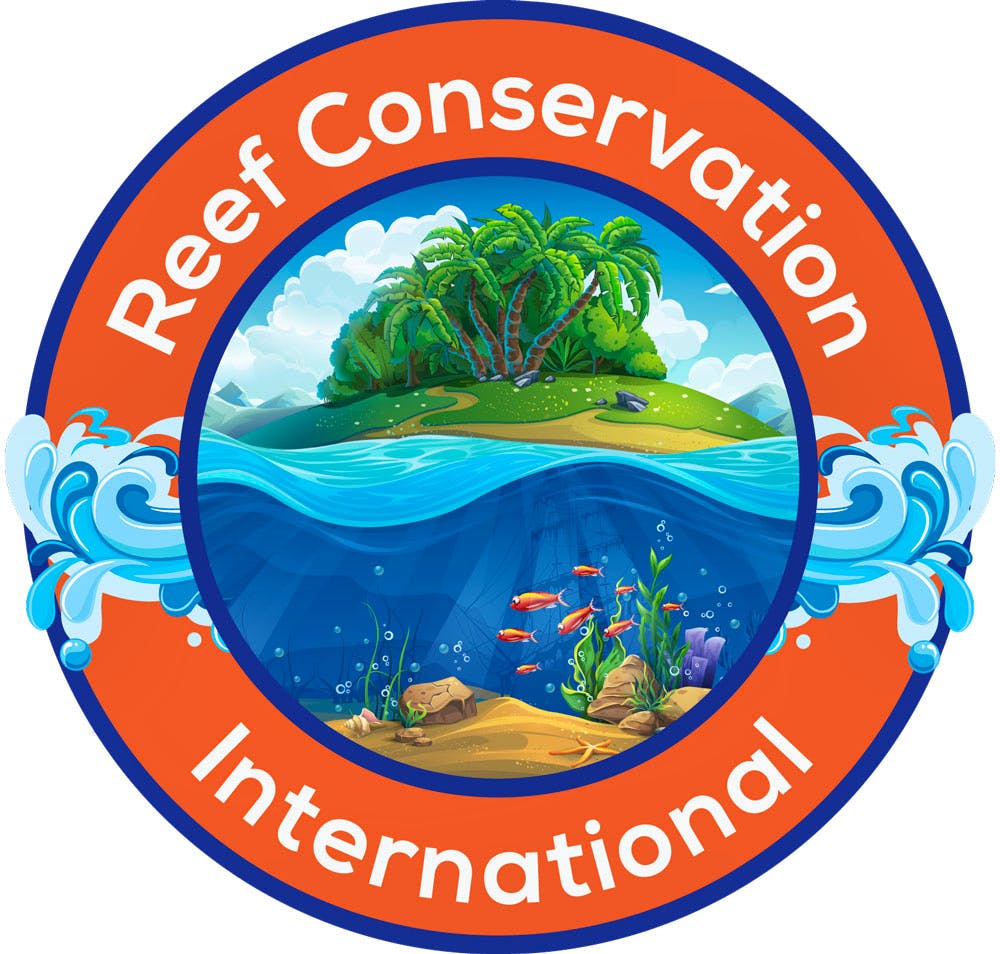
ReefCI
Non-profit - founded in 2006
Verified by Volunteer World
Coordinated by
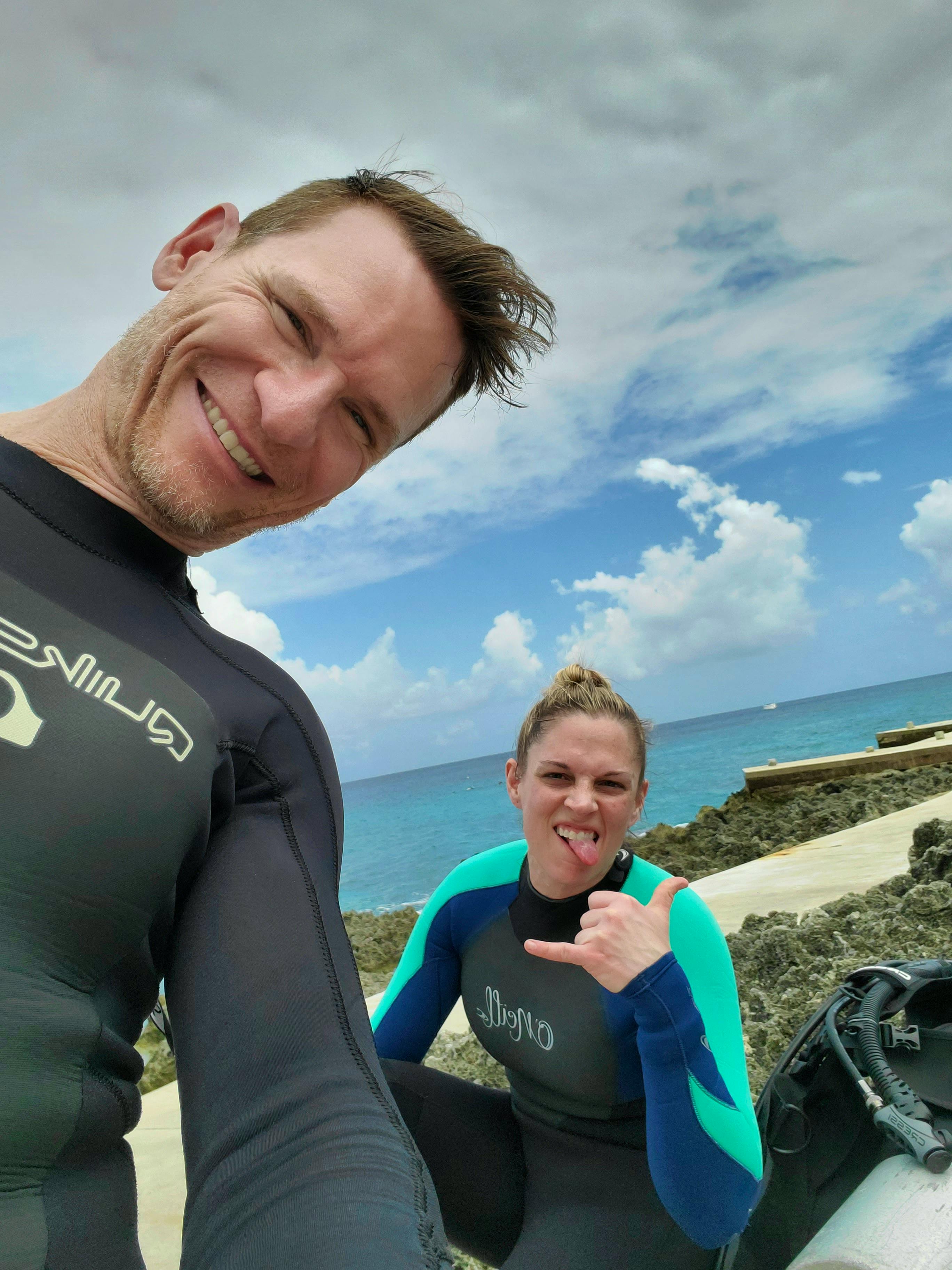
Anthony
About the project
84 reviews ·  4.9
4.9
Location

You might also be interested in
-
Coral Reef Conservation
Diving
Diving certificate
Ocean Cleaning
Divemaster
Whale Shark
Shark Conservation
Waste Reduction
50 Plus Volunteering
Latin America
Family Volunteering
Best Volunteer Programs
Scuba Diving in Belize
Voluntouring
Volunteer Trips for College Students
Group Volunteering
Couples
High School Volunteering
Mission Trips
Global Volunteer Opportunities
Under 18s Volunteering
Marine Big 5
Projects Abroad
Adults
